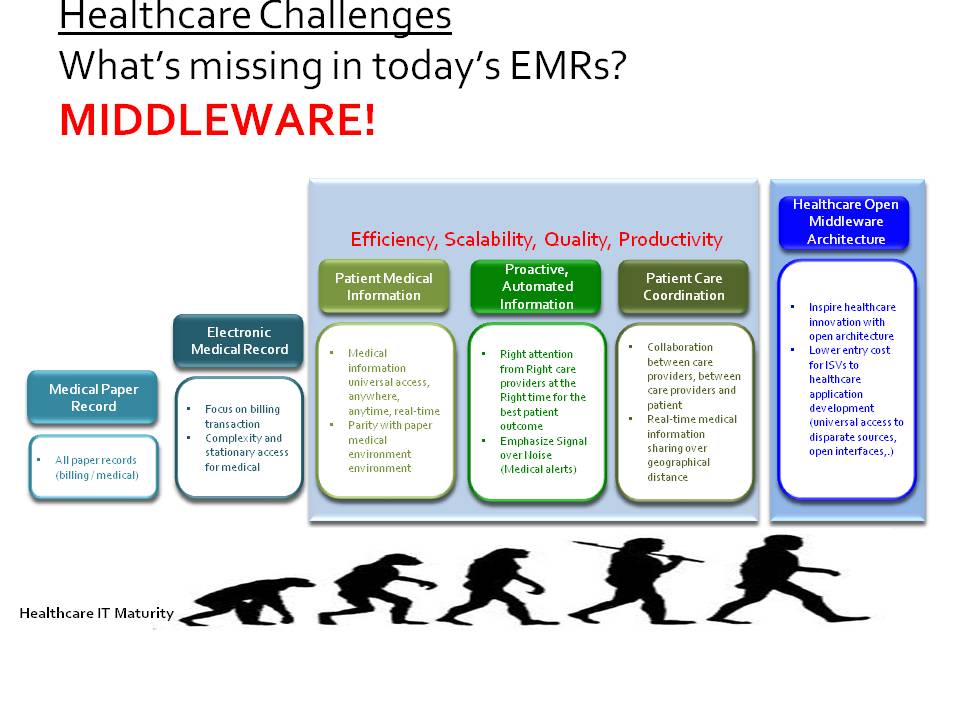By Dr. Donald Voltz, MD, Aultman Hospital, Department of Anesthesiology, Medical Director of the Main Operating Room, Assistant Professor of Anesthesiology, Case Western Reserve University and Northeast Ohio Medical University.
A board-certified anesthesiologist, researcher, medical educator, and entrepreneur. With more than 15 years of experience in healthcare, Dr. Voltz has been involved with many facets of medicine. He has performed basic science and clinical research and has experience in the translation of ideas into viable medical systems and devices.
Thanh Tran, CEO of Zoeticx, Inc. also contributed.
Billions of dollar from private and government funds have been poured into EMRs yet the ROI has not demonstrated a return. Outside of the financial outlay for implementation, training and maintenance of these systems, many other issues are impacting healthcare delivery and safety for patients.
Lack of User Interface Design
There is no question that the primary driver for implementing electronic medical records is to improve the delivery of care to our patients’ in a safe and efficient manner. Yet we have a lack of user interface design, poor or no interoperability, and minimal ability to customize EMR platforms to more effectively meet the needs of our patients. User interfaces that address the needs of various healthcare providers can appear to be unnecessary and window dressing to make physicians happier when interacting with computers, but it is a requirement for better data visualization and to prevent missing critical information.
In addition, design relates to how information is understood and communicated between healthcare providers as well as for patients to better understand their disease and the plan of treatment. All of the major EMR’s are using standard components to present data. None of them have successfully replicated the viewing of complex, interrelated data such as that displayed on a paper ICU record. With this lack of UI design, providers are forced to search through various areas of the EMR to locate it. Even when a specific piece of data cannot be found, medical workers are unsure if the data was collected or was added to some arcane location.
Outside of this frustration and possible duplication of work, a lack of UI design requires providers to hold the information in their mind until all of the various pieces are collected. The simple act of finding a pre-operative blood glucose value so that it can be documented in my pre-operative evaluation can be a challenge with many of the systems I have worked with. While this is one small issue that many would agree is insignificant, but when small items are missed or multiple items become compounded, patients are placed at risk. Given we are still in the early phases of healthcare IT, and there is an overall lack of standardization for these types of issues, they are impacting on how physicians and others practice.
Lack of Database Design
A somewhat related issue is storage of medial data. Database design not only lacks standardization, but has not been normalized to allow for the easy sharing of information between systems. This results in much duplication of data as well as tests and studies into different medical record systems. Interoperability has also not yet been solved, creating frustration and concerns on Capitol Hill with EHR providers. Work on interoperability is being done and the most notable way is through health information exchanges, but the issue is not to duplicate data in a third-party system, but to develop a framework where providers can access patient information in a standardized interface, irrespective of the proprietary EHR where it resides.
Finally, each of us work within different medical specialties and have varying requirements for medical data. A deluge of information in a tabular format does not promote efficient and safe delivery of information. A proactive design of information display has the potential to impact patient care, improve physician workflow, and increase patient safety. It is very difficult to change anything concerning data display and data entry in even the major EHR’s.
Middleware Key to Universal Connectivity
The tools, frameworks and understanding to deal with great amounts of data are available, but data needs to be displayed in ways to foster understanding and improve communication between providers and patients. Other data intensive business sectors have developed systems to foster quality care and we should be no different. There is some hope as organizations are beginning to introduce interoperability solutions which do not depend on vendors themselves, but allow for customization and interoperability using technology such as middleware and similar tools that have enabled other business sectors like finance to overcome these same issues.



































